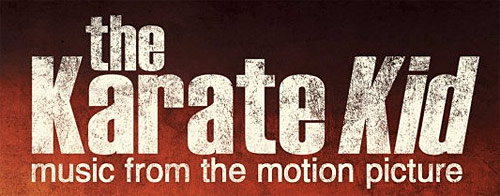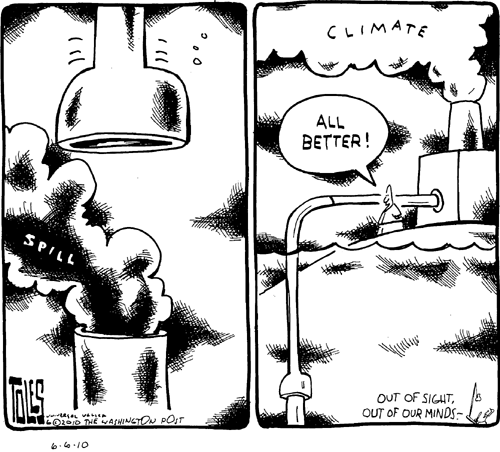In case you haven’t seen Patrick Boivin’s “AT-AT Day Afternoon” yet, check it out. Terrifically well-done and cute idea.
I can’t get my hands on an iPhone 4 yet, and this effing guy is BLENDING one?! Sonofabitch.
(via TUAW)
It’s been a while since I’ve posted a title sequence, so here’s one for you.
Designed by: Jeremy Cox (check out his other great work!)
Year: 2010
(Via Motionographer)
After seeing that awesome original trailer for The Empire Strikes Back last month, I poked around for one of my other favorite 80s flicks: Raiders of the Lost Ark. Not only did I find the original 1981 trailer, I found two other great videos.
Here’s the 1981 Raiders trailer:
Here’s a remade Raiders trailer from 2008. EPIC:
And finally, here’s user whoiseyevan‘s 1950s version of Raiders featuring all the influences and inspirations of the film:

After so many years of ranting against, detesting, abhorring, and otherwise loathing James Horner, I found myself in great enjoyment of his score for Avatar. Sure there were similarities with past works (standard for a Horner score and what I most derided him for), but the pieces came together in a magical and magnificent package.
But could my new-found Horner liking last into another score? His score for the 2010 remake of The Karate Kid would test that liking. The verdict? Yes, another great Horner score. I must be sick.
James Horner’s score for The Karate Kid is terrific, memorable, and balances light-heartedness, tenderness, and otherwise kick-ass-ness.
Originally, Zimmer-goon Atli Örvarsson was to score the film, and we’d likely end up with some half-baked mishmash of crap like Marc Streitenfeld’s Robin Hood score. Thankfully, we are treated to a proper score.
“Leaving Detroit” opens the score with a light and fanciful recurring theme:
/swf/audioPlayer2.swf“Kung Fu Heaven” wouldn’t be out of place in John Debney’s score for The Passion of the Christ:
/swf/audioPlayer2.swf“The Forbidden City” includes some lush string writing:
/swf/audioPlayer2.swfIn “Journey to the Spiritual Mountain,” Horner gives us some sumptuous travel music:
/swf/audioPlayer2.swfI imagine “Hard Training” accompanying a training montage:
/swf/audioPlayer2.swfThen we arrive at the ten-and-a-half-minute “From Master to Student to Master” which is undoubtedly the highlight of the album. Roughly six minutes of the cue is soft, reflective music featuring a lovely solo piano. The rest of the cue is balls-to-the-wall epicness. Horner lets loose with a magnificent, multi-part theme that repeats with varying instrumentation and arrangements. I have no intentions of seeing the film, but I’d love to know what is happening during this cue.
/swf/audioPlayer2.swfThe track concludes with a rousing Horner ending:
/swf/audioPlayer2.swf“Dre’s Gift and Apology” slows things down a bit and reprises on solo piano the theme first heard in the opening track:
/swf/audioPlayer2.swf“Final Contest” gives us another full dose of the epic multi-part theme in “From Master to Student to Master” and splendidly finishes out the album:
/swf/audioPlayer2.swfAs the film takes place in China, Horner takes care to include some Eastern instrumentation. There aren’t any explicitly-Eastern cues, but traditional Chinese instruments are effectively used as texture throughout the score. And as usual, the Japanese shakuhachi Horner’s favorite ethnic instrument makes an appearance in the score.
Always the question with a Horner score is how much did he plagiarize himself. I am surely not a Horner expert and am only familiar with his more mainstream works, but I don’t hear much that jumps out and screams, “Hey! I’m the theme from such-and-such movie that Horner ripped off!” Certainly there are echos of his past works, but this is more likely his writing style coming through (e.g. his crashing pianos make an appearance) rather than a true “Hornerism” of copy-and-pasting himself (surprisingly and thankfully his trademarked four-note danger theme is absent from the album). Even without the self-quoting, this is definitely a Horner score from start to finish.
The Amazon page for the score says, “A release date has not yet been set for this title,” but you can pre-order the score. If you’re not willing to wait indefinitely, you can purchase the score via iTunes.
And you should, because with his score for The Karate Kid, James Horner has provided another terrific score and is slowly making me a believer. His tender, solo piano themes and his epic, full-blown orchestral might leave me wanting more. James Horner kicks-ass with The Karate Kid.
![]()
Continuing my discussion on Lisle Moore’s outstanding theme for ESPN’s coverage of the World Cup, here’s a better recording-session video that showcases the music better. If you’ve been watching ESPN’s coverage of the World Cup, you’ve heard the music.
Also, the Salt Lake Tribune wrote about the Utah-native Moore:
The theme you will hear during ESPN’s monthlong soccer coverage was written by Highland composer Lisle Moore. Moore, with the assistance of Salt Lake City’s Non-Stop Music, created the grand, inspiring music that melds African voices with a full orchestra.
Moore, a graduate of the Berklee College of Music and a Utah resident since 1994, has written music for TNT’s coverage of the NBA, and has worked with ESPN before on golf and tennis coverage. “This is a bigger deal,” said the sports buff who calls himself a die-hard Jazz fan. “This is worldwide.” […]
When ESPN contacted him about a year ago asking for a proposal for 2010 World Cup music, Moore knew the network was looking for more than a traditional score for the event. It wanted a musical reflection of where the tournament was being held, while enticing ESPN viewers to keep watching throughout an entire month of programming. “I had to do a lot of listening on iTunes to see what I was up against,” Moore said. […]
With the go-ahead from ESPN, Moore composed 16 variations of the theme so the music could be used in multiple ways on TV, such as during the highlights show, promos, and before and after commercial breaks.
Again, outstanding effort from Moore. Awesome music that captures the excitement and the setting of the games. Bravo!
(Before LOST ended, I saved the website and article I discuss below for after the show was over, but I forgot about them. Fortunately, Instapaper did not, and now they are found again.)
An indelible part of the six seasons of LOST was the musical score provided by Academy-Award-winning composer Michael Giacchino. With his purposely scant ensemble of strings, trombones, and percussion, he crafted a sometimes subtle, sometimes striking, and often moving musical counterpart to the mysteries and the characters of the island.
The first five seasons of music are available to purchase (hopefully the sixth will be soon, too). But if you want a closer look at each theme and each motif Giacchino created for characters, events, and specific situations, check out the website Music by Michael Giacchino.
On the site’s special LOST page, each episode is listed with samples of the themes and motifs that episode introduced. Every theme and motif quite an impressive undertaking by whomever is behind the site.
Some of my favorites:
- Suspense motif
- Locke’s theme
- Life and death theme
- Rescue theme
- Jacob’s theme
- Richard Alpert’s theme
- Oceanic Six theme
Giacchino’s Oceanic Six theme is probably the finest theme he wrote for the show. Beautiful.
Finally, if you’re interested in a little behind-the-scenes action, Maria Elena Fernandez of The Los Angeles Times blog Show Tracker featured exclusive video of a rehearsal for a LOST concert with Giacchino and his ensemble. Below is one of the videos, but be sure to check out the rest.
Jon Stewart had a pretty good take-down of the president this week (starting around 4:39):
Whether or not there is more that the president can do, he needs to convince the American public that he is doing all that he can. Every classic story has a villain and a hero. We have a villain: BP and Big Oil. Now we need a hero. Especially if the computer models are correct (via Discovery News) or if a hurricane (or two) blow through the Gulf.
If you haven’t seen The Big Picture’s post yesterday of birds caught in the oil spill, check them out. The pictures are as disgusting as they are heartbreaking, and thinking that they’re just the beginning is difficult. I drive a car everyday. This is my spill, too. Below, a bird caked with oil:

